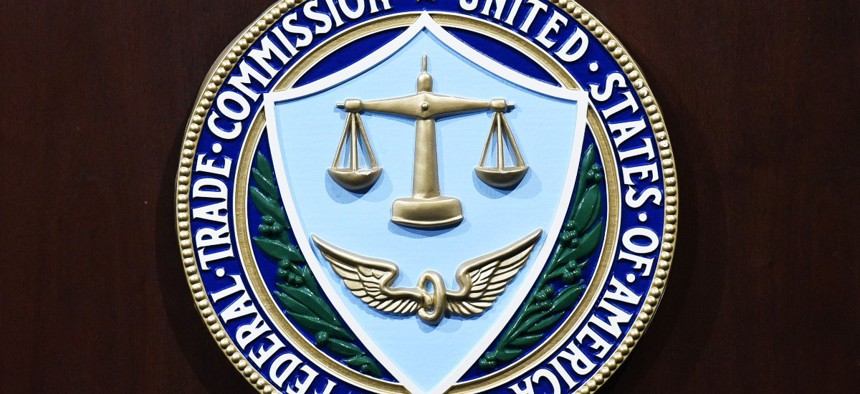FTC Proposes Ban on Noncompetes, Which Agency Says Stifle Innovation

MANDEL NGAN/AFP via Getty Images
Opponents of noncompetes have long argued that the agreements have a harmful impact on competition, particularly on the tech sector’s ability to develop cutting-edge devices and services.
The Federal Trade Commission on Thursday proposed a rule that would ban companies from requiring their employees to sign noncompete agreements, a prominent practice in the tech industry that prevents departing workers from taking jobs with competitors or starting their own rival businesses for a period of time after they leave their former jobs.
The FTC’s sweeping proposal would “generally” prohibit companies from enforcing noncompete clauses in employment contracts, rescind existing noncompetes and make it illegal for employers to enter into or maintain noncompete agreements with their workers. The proposed rule would also apply “to independent contractors and anyone who works for an employer, whether paid or unpaid.”
The FTC said in a press release that noncompetes violate Section 5 of the Federal Trade Commission Act, which prohibits unfair methods of competition. The agency added that the proposed rule “could increase wages by nearly $300 billion per year and expand career opportunities for about 30 million Americans.”
“In product and service markets, noncompete clauses prevent entrepreneurial growth, which negatively impacts consumers by reducing competition in those markets,” the FTC’s proposed rule said. “Noncompete clauses also foreclose competitors’ ability to access labor market talent, negatively affecting those competitors’ ability to effectively compete in the marketplace. Additionally, noncompete clauses impede innovation, which may negatively impact technological growth rates.”
Noncompete agreements have been a staple of the private sector for years, particularly when it comes to ensuring that company executives do not depart for a rival company with insider information about their former employer. In recent years, however, some companies have begun to extend noncompetes to lower-wage workers, including those in the retail and food service industries. A March 2022 report from the Treasury Department noted that roughly one in five U.S. workers were bound by a noncompete agreement.
Opponents of noncompetes argue that these agreements limit competition by protecting large companies at the expense of new entrepreneurial ventures, resulting in a detrimental impact on the development of innovative, new technologies and other services.
The FTC’s proposal, in part, cited a study which found that when Hawaii stopped enforcement of noncompetes for high-skilled tech workers, the earnings of new workforce hires rose by approximately 4%. The FTC said that “extrapolating from the estimates for Hawaii to the average impact on high-tech workers in each state, a prohibition such as the one in this proposed rule would increase earnings of high-tech workers in the average state by 4.8 percent.”
President Joe Biden previously signed an executive order in July 2021 to promote competition across the U.S. economy that, in part, encouraged the FTC to limit or ban noncompete agreements and said that “one way companies stifle competition is with noncompete clauses.”
As tech companies seek to address manufacturing and supply chain concerns—which were underscored by passage of the Chips and Science Act last year to boost domestic production of semiconductors and other U.S.-made technologies—access to high-skilled workers becomes a necessity. Even with a recent wave of layoffs affecting both large and small tech companies, resulting in a pool of skilled workers looking for new jobs, opponents of noncompetes argue that these agreements continue to harm domestic innovation and competition.
“The freedom to change jobs is core to economic liberty and to a competitive, thriving economy,” FTC Chair Lina Khan said in a statement. “Noncompetes block workers from freely switching jobs, depriving them of higher wages and better working conditions and depriving businesses of a talent pool that they need to build and expand. By ending this practice, the FTC’s proposed rule would promote greater dynamism, innovation and healthy competition.”
Supporters of noncompete agreements, however, say they are a longstanding practice in employment contracts, particularly when it comes to safeguarding intellectual property and sensitive business information from competitors.
In a dissenting statement, Republican FTC Commissioner Christine Wilson said the proposed rule “represents a radical departure from hundreds of years of legal precedent that employs a fact-specific inquiry into whether a non-compete clause is unreasonable in duration and scope, given the business justification for the restriction.”
The FTC voted 3-1 to publish the notice of proposed rulemaking, which marks the first step of the agency’s rulemaking process. The public will have 60 days to submit comments on the proposal before the FTC votes on a final rule.






